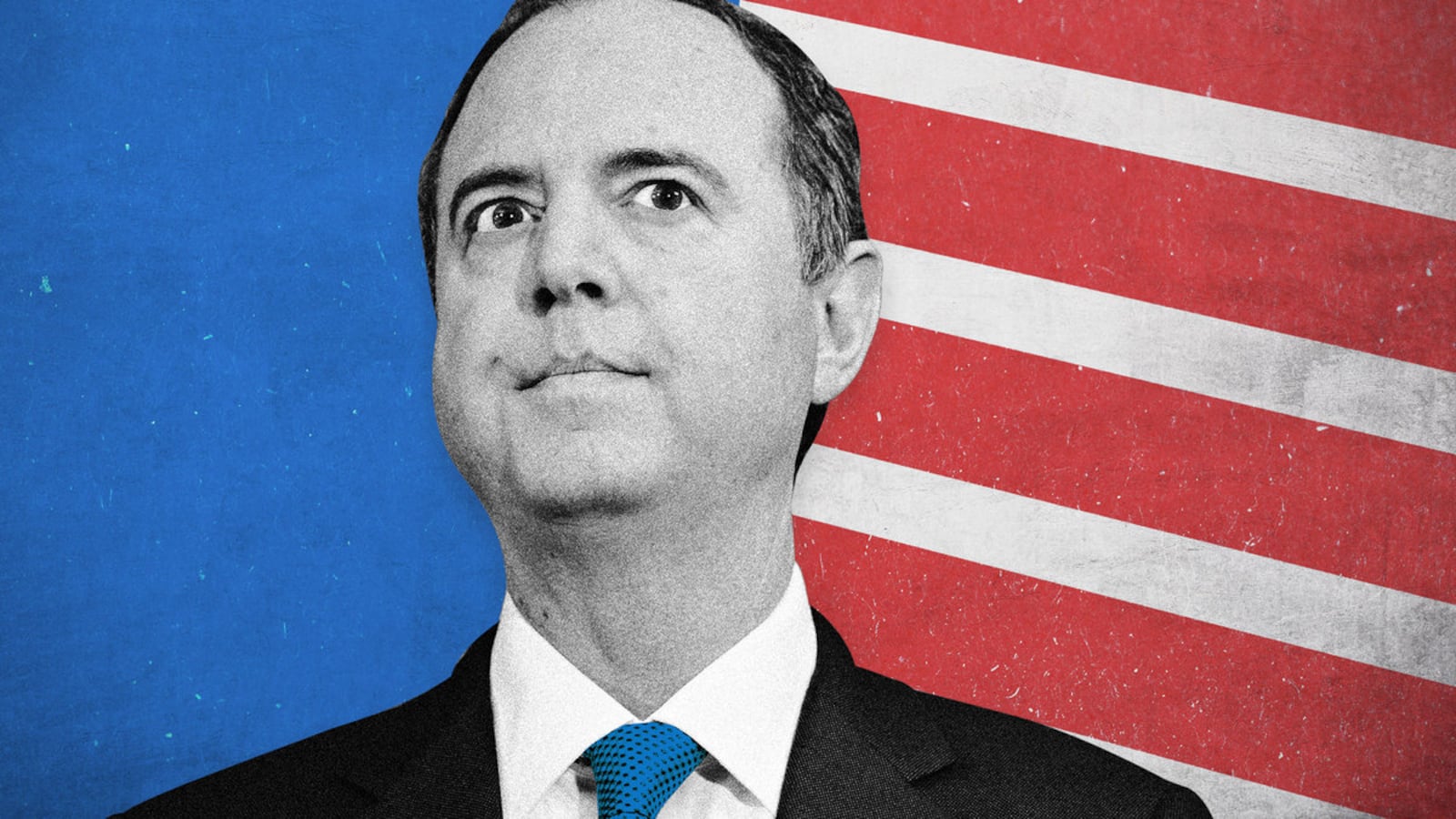In a decision that could pad the wallets of other elected officials in the future, the Federal Election Commission has given Rep. Adam Schiff (D-CA) the green light to promote his new book by renting his extensive campaign email list to his own publisher.
Schiff pitched the FEC on the matter in October—about a week after he published his first full-length book, Midnight In Washington—and the commissioners issued their opinions late last month. The announcement appeared in an FEC bulletin released Monday.
The decision allows Schiff’s publisher, Random House, to pay his campaign for access to email addresses collected over the course of the five-term Democrat’s time in office. Random House will use that list to target promotional materials to a narrowly tailored fan base, which, of course, includes supporters known to have previously given Schiff money.
The decision also navigates the collision of two big-ticket fundraising draws: candidate book sales and email list rental. Both practices have attracted criticism, and can carry serious legal risks if not handled cleanly.
While earlier FEC advisory opinions have allowed candidates who are hawking books to personally rent lists from their own campaign at fair market value, the regulator had not taken up the question of the publisher renting directly from the campaign. The arrangement is fair, the commissioners said, as long as “no Committee resources or personnel would be used to promote the book,” and the rental price is fair market value.
Paul S. Ryan, vice president of litigation at campaign reform advocacy group Common Cause, said that the decision is in line with years of FEC rulemaking, and “strikes the right balance.”
“The FEC’s opinion in this matter seems consistent with its handling of similar matters over the past decade-plus,” Ryan told The Daily Beast.
Ryan noted that the value of a campaign’s donor list, already sky-high, may certainly appear heightened in the Schiff scenario, when the candidate stands to benefit from his own custom data. But, he said, “at the end of the day the FEC needs to draw lines in order to facilitate consistent administration of the law. And I think they’ve done an acceptable job of doing so in the context of donor lists.”
However, not every good government expert was as convinced.
Brendan Fischer, director of federal programs at government watchdog Campaign Legal Center, took a far more critical view.
“Basically, the FEC came to the surprising conclusion that a publisher may lawfully pour money into a candidate’s campaign so that more royalty money goes into the candidate’s pocket,” Fischer said, noting that the decision is a product of “the FEC’s somewhat mechanical application” of precedents around book promotion and campaign list rentals.
The combination of those two sets of rules—bans on personal use and corporate contributions—led the FEC to this outcome, which Fischer called “yet another example of the FEC making up new ways around the rules.”
A publisher must use its own resources to promote a candidate’s book, Fischer explained, pointing out that federal law prohibits campaigns from using their assets to promote a book where the candidate receives royalties.
“It would be illegal for the campaign to use its list to promote the candidate’s book, but the FEC says it is legal for the campaign to take money from the publisher so that the publisher may use the list to promote that same book,” he said. “In other words, a publisher may lawfully pour money into a candidate’s campaign so that more royalty money will go into the candidate's pocket.”
One candidate who appears to have crossed this line is Sen. Ted Cruz (R-TX). Fischer’s organization pointed this out in an FEC complaint earlier this year, after The Daily Beast reported that Cruz appears to have tapped donor funds last year to promote his own book.
As for the second point—lists—it may come as a surprise to some voters, but donor contact information is a high-demand product, and campaigns regularly buy and sell their information to each other behind closed doors. And the FEC even allows campaigns to sell that information to third parties, as long as the campaign is paid fair market value.
That value can be extraordinarily high, and the bigger the list, the better.
In the 2020 election cycle, the Republican Party shelled out $47 million for list acquisition, about half of it to an all-but-invisible company called Digital Consulting Group. But campaigns have also been cashing in on their own assets, by selling donor information to other political committees and, as is the case with Schiff, to companies. The Trump campaign pocketed more than a million dollars renting its list out to consulting firm Excelsior Strategies, and former Maine Democratic Senatorial candidate Sarah Gideon has made half a million dollars in list rental after her 2020 loss.
Of course, books are a great way for political groups to beef up those lists. Not only can fundraisers juice supporters for higher dollar amounts, they can also use books to lure new supporters who may otherwise be reluctant to part with a donation.
The Washington Post reported in April that this is largely a Republican game. During the 2020 cycle, four Republican political organizations spent more than $1 million combined on bulk orders of books by conservative officials, candidates, and media figures. The purchases helped a number of them become bestsellers.
Meanwhile, at least seven Democratic senators released books ahead of the 2020 election. None of the party’s national committees reported any mass purchases.









